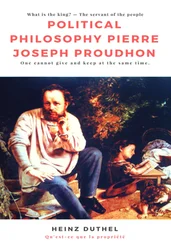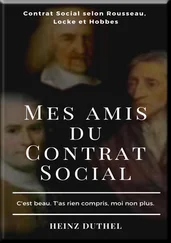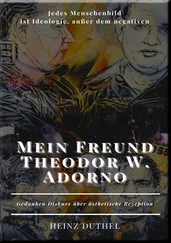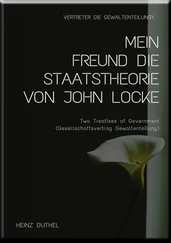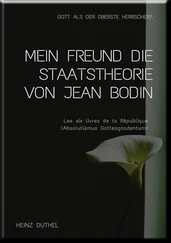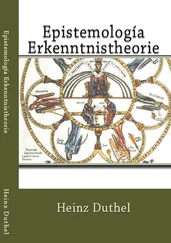1 ...8 9 10 12 13 14 ...23 2.1.4 Are we in an age of postmodernity?
The enlightenment is dead, Marxism is dead, the working class movement is dead . . . and the author does not feel very well either.
[Harvey, 1990 #540, p 325]
In the closing days of the second millenium, one of the more contentious debates surrounding academia is over the claim that we live in a postmodern age. What I argue in this section is my position on postmodernity. There are arguments that in this age of global markets, mass communications, changing employment practices and rising living standards, we live in an age where capitalism as described and conceptualised by Marxists has fundamentally obliterated itself. For Francis Fukuyama we have reached the “end of history” with the triumph of liberal democracy [Fukuyama, 1992 #774, p 338]. The literature here is too vast to explore in detail, and I do not feel I need to rehearse the analysis here. What I do need to do, since I have been arguing for a political meta-narrative that postmodernism would deny, is to give my rationale for rejecting arguments for postmodernity.
Alex Callinicos describes how, because the characteristic structures of capitalism have not undergone any fundamental transformation, postmodernity, seen as a perspective which eagerly embraces the present as the beginning of a new era of unprecedented fluidity, social mobility, and individual choice is “historically dubious” [Callinicos, 1999 #722, p 260].
Has the dialectic of modernity been transcended thanks to our entry into a postmodern condition constituted by the collapse of the ‘grand narratives’ which offer comprehensive interpretations of the totality of human history? The short answer is ‘No’.
[Callinicos, 1999 #722, p 296]
Michael Apple, whose work is located within critical education, holds a similar position.
Capitalism may be being transformed, but it still exists as a massive structuring force. Many people may not think and act in ways predicted by class essentializing theories, but this does not mean the racial, sexual and class divisions of paid and unpaid labor have disappeared nor does it mean that relations of production (both economic and cultural since how we think about these two may be different) can be ignored if we do it in non essentializing ways.
[Apple, 1997 #775, p 599]
Recent claims of postmodernism are purporting the obsolescence of essentialist or totalising theories of society and that instead we must content ourselves with localised theories. But localised theories smack somewhat of the individualism of liberalism, as Peter McLaren puts it.
As a Marxist, I have some problems with postmodern social theory - not all of its manifestations but in many of them. Often mistaking their radical posturing and flamboyant marginality for a transgressive politics, the fashionable apostasy of the postmodernists offers a sexy smoke screen for a sell-out liberal humanism.
[McLaren, 1995 #270, p 18]
You can almost smell the smoking gun! Postmodern social theory, and in particular postmodern educational theory, does little to challenge capitalist social relations. What postmodern approaches inform us of, and help us with, are the different discourses, different variables and interpretations, different readings of texts. What postmodern social theory does rather less well is to help us see what binds it all together. What remains the same? Jobs, money, poverty, unemployment, social disadvantage, educational failure. Postmodern social theory is blind to the political nature of many events. Relating this to educational, Michael Apple claims that “too little focus has been placed on the political economy of what knowledge is considered high status in this and similar societies” [Apple, 1997 #775, p- 598].
Antony Easthope opines that French philosophy shows us what it is like to live at the end of the 20th Century "more intimately and completely than anything else." Now that really is a load of old tosh. What has French philosophy to say about unemployment, poverty, child prostitution, drugs the state of our justice system or our disappearing democracy? Rien. Its rigid jargon and cumbersome neologisms preclude knowing anything either "intimately" or "completely.” The only way French theory connects with late 20th century life is in the philosophical support it gives to market economics.
(Letter to the Guardian, 5 June 1997)
So is postmodernism “just a load of old tosh”? Alex Callinicos seems to think so,
Moreover much of what is written is support of the idea that we live in a postmodern epoch seems to me of small calibre intellectually, usually superficial, often ignorant, sometimes incoherent. … I seek here not simply to demonstrate the intellectual inadequacy of postmodernism understood as the claim that we are entering a postmodern epoch, but to set it in a historical context. Postmodernism, then, is best seen as a symptom.
[Callinicos, 1989 #75, 5 - 6]
Furthermore, it is argued that postmodernism is less about the form of society, and more about political orientation and pre-millenium nostalgia.
The discourse of postmodernism is best seen as the product of a socially mobile intelligentsia in a climate dominated by the retreat of the Western labour movement and the ‘overconsumptionist’ dynamic of capitalism in the Reagan-Thatcher era. From this perspective the term ‘postmodern’ would seem to be a floating signifier by means of which this intelligentsia has sought to articulate its political disillusionment and its aspirations to a consumption-oriented lifestyle. The difficulties involved in identifying a referent for this term are therefore beside the point, since talk about postmodernism turns out to be less about the world than the expression of a particular generation’s sense of an ending.
[Callinicos, 1990 #408, p 115]
That it is a nihilistic perspective, Alex Callinicos leaves us in no doubt.
Unless we work towards the kind of revolutionary change which would allow the realisation of this potential in a transformed world, there is little left for us to do except, like Lyotard and Baudrillard, to fiddle while Rome burns.
[Callinicos, 1989 #75, p 174]
I do feel passionately that there is something else we can do and I reject arguments that we are in a post-modern era. This however does not imply that I reject all that goes under the label of ‘post-modernism’, particularly postmodern approaches to epistemology and research methodology. Morwenna Griffiths points out “that there is a wide range of often mutually incoherent views about post-modernism” [Griffiths, 1993 #273, p 223] and yet highlights “that some feminists and some educationalists (including feminists) have benefited from their engagement with postmodernism” [Griffiths, 1993 #273, p 224]. What I understand to be the basic tenets of a postmodern approach are identified by Patti Lather who describes it as a fragmentation of discourses; a break with totalizing, universalizing ‘meta-narratives’; that we live in a world with a cacophony of multiple readings and interpretations [Lather, 1991 #78, p 5]. Drawing on such post-modern approaches can support challenges to the status quo and traditional categories of thought and classification and should not be dismissed out of hand, as Susan Bordo writes
A good deal of the linguistic paraphernalia of academic postmodernism, for all its pretentiousness, has its origins in important insights and ideas that ought not to be dismissed out of annoyance with the elitism and insularity that are, after all, hardly new to academia.
[Bordo, 1992 #776, p 161]
Two areas that can benefit from these insights are the ‘politics of difference’ and the ‘politics of emancipation’. What I would argue for is the need to locate this struggle for difference and emancipation within the logic of social organisation. Morwenna Griffiths takes the approach of arguing, not for a post-modern feminism, but a feminist postmodernism [Griffiths, 1993 #273, p 231]. However, the argument that feminism, and consequently emancipation more generally, can benefit from post-modern approaches has its opponents.
Читать дальше




